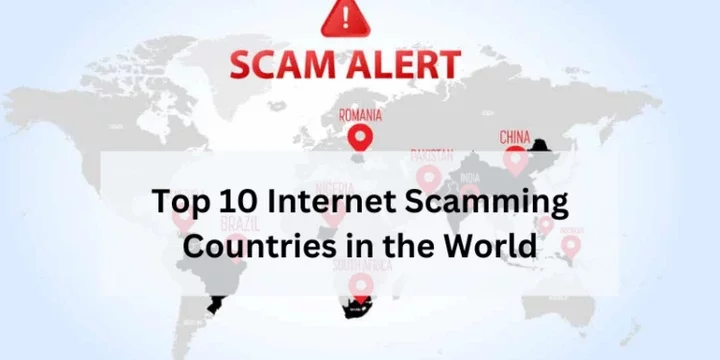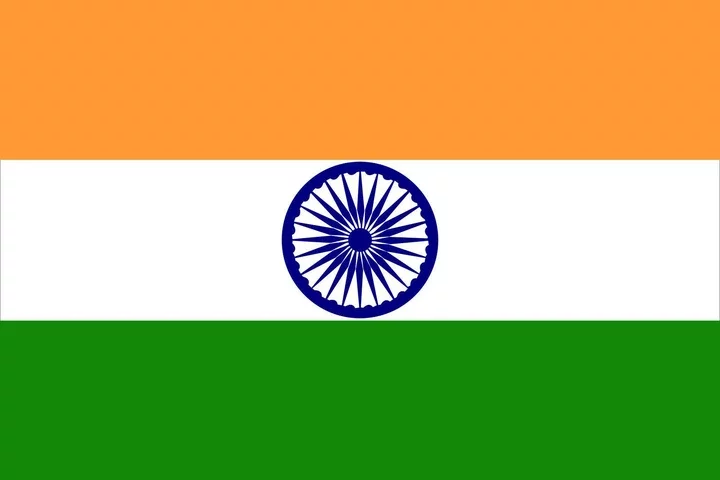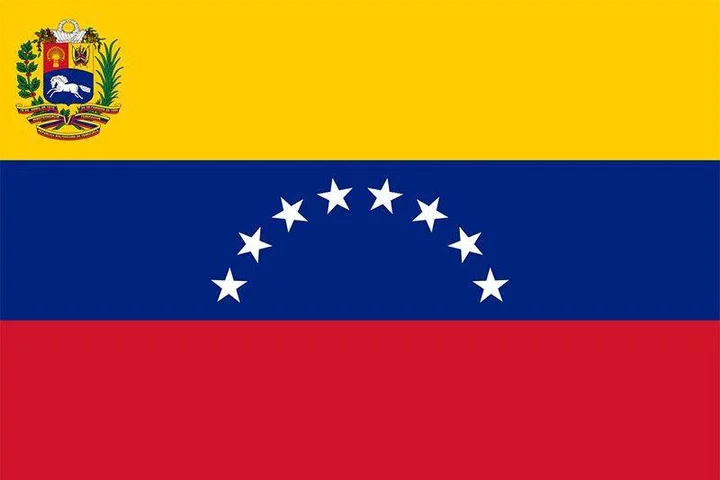
Have you ever received one of those too-good-to-be-true emails promising you millions of naira if you just send a few thousand naira upfront to cover a certain fee or legal fees? Chances are that email came from one of the top internet scamming countries in the world. You might think internet scams are spread evenly around the globe, but some countries actually specialize in online fraud and deception.
These nations have become global headquarters for phishing schemes, advance fee scams, and other shady cybercrimes. If an unsolicited message sounds fishy, it's probably from one of these 10 scamming hotspots. Read on to find out the top 10 Internet scamming Countries in the world.
What Is Internet Scamming?
Internet scamming, also known as online fraud, involves using the Internet to defraud victims and steal money or personal information. Scammers develop sophisticated techniques to trick people into providing sensitive data or funds.
How Internet Scams Operate Around the World
Want to know how those sneaky scammers steal your cash? It's easier than you think.
Scammers often pose as trusted companies or long-lost relatives to trick you into sending money or account access. They may call, claiming you owe taxes or that a family member needs emergency funds. Or, if you receive an email saying you inherited millions or won a prize, just pay the fees! Once scammers have your information or cash, it's gone. Many operate overseas, so they're hard to catch.
Stay vigilant, guard your info and never send money to strangers. Sadly, if it sounds too good to be true, it usually is. Knowledge is power, so warn family and friends. Together, we can outsmart the scammers!
Common Internet Scams to Watch Out For
Watch out for these common internet scams:
Phishing emails
Phishing emails claim you've won a prize or there's a problem with your account. They try to trick you into entering personal info or downloading malware. Never click links or download attachments from unsolicited messages.
Tech support scams
You'll get a call claiming there's an issue with your computer or internet. They say they need access to fix it, but are really trying to install malware or steal your data. Never give control of your devices to unsolicited callers.
Romance scams
Criminals pretend to be romantically interested in you online, then convince you to send money or gifts. Be wary of unsolicited affection, especially requests for cash or wire transfers.
Employment scams
Fraudsters post fake job ads to get access to your personal information or money. They may ask for fees for background checks, training, or equipment upfront. Never pay for a job or hand over sensitive data to a new employer before your first day.
Advance fee scams
You'll get an offer for an amazing deal, like free money, but have to pay a small fee first. The scammers take your money and disappear. Remember there's no such thing as free money, if it seems too good to be true, it probably is.
Lottery/prize scams
You'll get notified you won a lottery or prize you never entered. To claim your winnings, you need to pay taxes or fees upfront. Legitimate lotteries don't ask winners to pay anything before claiming prizes.
Charity scams
Fraudsters solicit donations for fake charities or steal money from legitimate charities. Donate only to reputable charities and never give out personal information or wire money to unsolicited callers.
Top 10 Internet Scamming Countries
Some countries are known for their prolific scammers and email scams. Some of these countries are hotbeds for online fraud due to a lack of cybercrime laws and poverty.
Here are the top 10 Internet scamming countries in the world:
Brazil

The largest country in South America, Brazil and the fifth largest country in the world. Due to its large size, Brazil has become a hotspot for various internet scams. The most common scams originating from Brazil are phishing emails, online shopping and auction fraud, and inheritance scams. Criminals often pose as Brazilian officials or long-lost relatives to trick victims into wiring money or providing account access.
Pakistan

Pakistan is considered a hotspot for internet scams and fraud. According to various reports, Pakistan ranks among the top sources of internet scams in the world. The most common scams are business email compromises, romance scams, and technical support fraud. The scammers often target victims overseas and rely on online anonymity to carry out fraud and theft.
Nigeria

Nigeria is a major hub for internet scams and fraud in Africa. According to research, Nigeria was responsible for over $650 million lost to scams like phishing emails, business email compromises, and romance scams.
India

India is a hotbed for internet scams and fraud. According to reports, India ranks among the top countries for the origination of spam, phishing, and malware. The majority of tech support scams that target Western victims also originate from India.
South Africa

South Africa is one of the top internet scamming countries in the world. According to reports, South Africa accounts for over 20% of the continent's cybercrime, with the majority being internet fraud and scams.
China

China is a major source of internet scams and fraud. According to an FBI report, China was responsible for the highest number of cybercrime reports in 2019.
Some of the most common scams originating from China include:
Phishing emails claiming you've won a lottery or inheritance to trick you into providing personal information or paying "fees".
Romance scams where fake online profiles are used to strike up a relationship and eventually ask for money or gifts.
Tech support scams where people call claiming to be from Microsoft or Apple tech support to gain remote access to your computer or steal account info.
China's large population, tech-savviness and limited cyber laws enforcement have created a perfect storm for scammers. Although the Chinese government has pledged to crack down on cybercriminals, more needs to be done to effectively curb these fraudulent activities. Until then, be very wary of unsolicited contacts from China and never provide personal information or send money to anyone you do not know and trust.
Romania

Romania is a haven for online fraud and scams. According to the Internet Crime Complaint Center, Romania ranks among the top sources of cybercrime.
The majority of Romania's internet fraud involves phishing emails, tech support scams, and ransomware. Scammers often pose as legitimate companies to trick victims into providing account numbers, passwords, or money. Some scammers may claim your computer is infected with viruses to gain remote access or sell worthless software.
Venezuela

Venezuela is known for several types of cybercrimes, in particular email phishing and ransomware attacks.
According to several reports, Venezuela accounted for a disproportionate amount of malicious online activity yearly, ranking among the top sources of spam, phishing, and ransomware campaigns. The economic crisis and political instability in Venezuela have led to increased cybercrime.
Indonesia

Indonesia is one of the top internet scamming countries in the world. According to the FBI's Internet Crime Complaint Center (IC3), Indonesia ranked one of the top countries in the world for cybercrime. The majority of scams coming out of Indonesia are romance scams, tech support scams, and online shopping fraud.
Philippines

The Philippines is a hotspot for online fraud and scams. According to research by Microsoft, the Philippines ranked as the top country for business email compromise scams in 2020. Scammers often pose as legitimate companies or romantic interests to trick victims into sending money or sensitive account information.
Tips to Avoid Falling Victim to Internet Scams
To avoid becoming a victim of internet scams, follow these tips:
Be skeptical of unsolicited messages
Delete emails, texts or phone calls from unknown senders or unknown numbers. Never click links, download attachments or provide personal information to unverified sources.
Watch out for phishing attempts
Be wary of official-looking messages claiming there's an issue with an account or that you've won a prize. Legitimate companies don't ask for sensitive data via email.
Never wire money to strangers
Scammers often pretend to be family members or friends in emergencies to trick people into sending money. Call to verify before sending funds.
Use strong and unique passwords
Use a minimum of 8 characters, upper and lower case letters, numbers and symbols. Don't reuse the same password across sites. Enable two-factor authentication when available.
Be cautious of online purchases from unfamiliar sellers
Do research to ensure the site and seller seem legitimate before entering payment info. Look for signs like a secure URL, business address, and return policy.
Monitor accounts and statements regularly
Watch for unauthorized charges or activity which could indicate stolen account access or identity theft. Report anything suspicious immediately.
Stay educated on the latest online threats
Scams are constantly evolving. Keep learning about new variants of phishing, malware, ransomware and other cybercrimes to stay vigilant. Knowledge is the best defense.
How To Stop Internet Fraud In A Country
To stop internet fraud in a country, there are several effective measures that can be taken:
Educate citizens about common scams and frauds: Inform people about phishing emails, fake check scams, inheritance frauds, etc. so they can spot and avoid them.
Enact and enforce strong cybercrime laws: Pass legislation that specifically prohibits internet fraud and gives law enforcement the authority to investigate and prosecute scammers.
Increase penalties and punishment: Make the consequences of internet fraud severe enough to deter criminals. Options include hefty fines, prison time, asset forfeiture.
Improve cybersecurity infrastructure: Invest in advanced technologies and security systems to detect fraudulent activity and block scams. Things like spam filters, firewalls, antivirus software.
International cooperation: Work with other countries and global internet companies to identify and stop cross-border fraud. Share intelligence and best practices.
Educate law enforcement: Provide police and government agencies with training on the latest online fraud techniques so they can better prevent and combat internet scams.
Monitor financial transactions: Track suspicious money transfers, wire activity, and cash flows to uncover fraud networks and cut off their funding sources.
Protect personal data: Enact laws like General Data Protection Regulation (GDPR) that put safeguards and controls around citizens' private information to make fraud and identity theft more difficult.
Resources for Reporting Internet Scams in Nigeria
When reporting internet scams in Nigeria, there are several key resources available for victims.
EFCC
The Economic and Financial Crimes Commission investigates financial and related cyber crimes in Nigeria. You can report scams and fraud via their website or hotline. The EFCC works with international agencies to curb transnational cybercrime.
Nigeria Police Force
The Nigeria Police Force has a Cybercrime Unit dedicated to preventing and investigating internet-related crimes. You can file a report about an online scam with your local police station or through their hotline. The Police Cybercrime Unit partners with other law enforcement to prosecute cyber criminals in Nigeria.
Consumer Protection Council
The Consumer Protection Council of Nigeria protects citizens from unfair business practices, including online fraud and scams. You can report a scam to the CPC through their online complaint form, hotline, or by visiting their office. The CPC aims to prevent consumer exploitation and punish offenders.
Code of Conduct Bureau
The Code of Conduct Bureau combats corruption in public service, including fraud linked to government officials and institutions. Report scams implicating public officers or misuse of government resources to the CCB hotline or directly on their website. They investigate and prosecute violators of the Code of Conduct for public officers.
Social media
Using the hashtag #stopthescam, you can report and warn others about online fraud on social media. While not an official reporting mechanism, raising awareness of current scam tactics on platforms like Twitter and Facebook can help curb victimization. Be sure to also report the scam to the appropriate government agencies.
Staying vigilant and informed is key to avoiding internet scam victimhood.
Conclusion
So there you have it, the top 10 countries responsible for the majority of online scams and fraud in the world. The next time you get an email from a Nigerian prince promising millions or a hot Brazilian bride looking for love, hit delete. And if it sounds too good to be true from any country on this list, it almost certainly is. Stay vigilant out there, keep your personal information secure, and think before you click. The scammers are getting more sophisticated, but with awareness and skepticism, you can avoid becoming their next victim.


















Comments